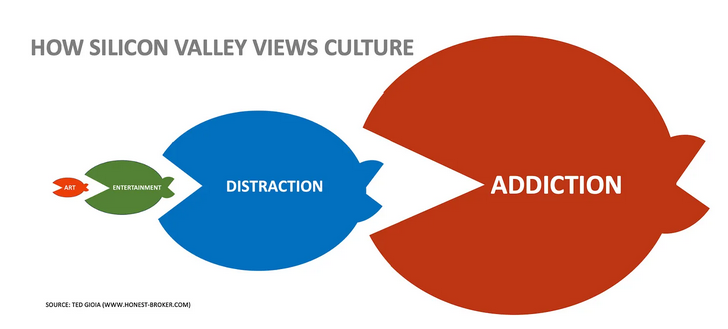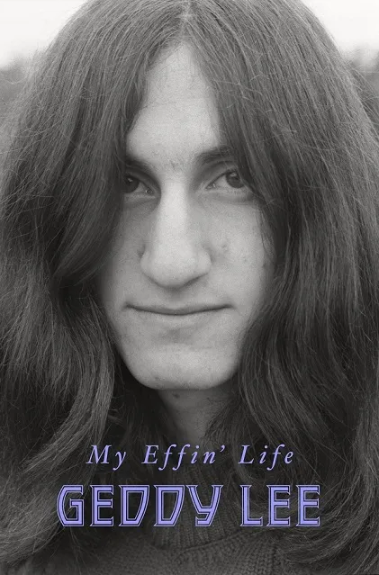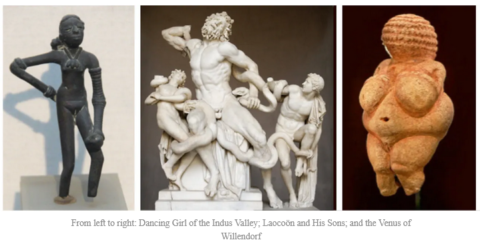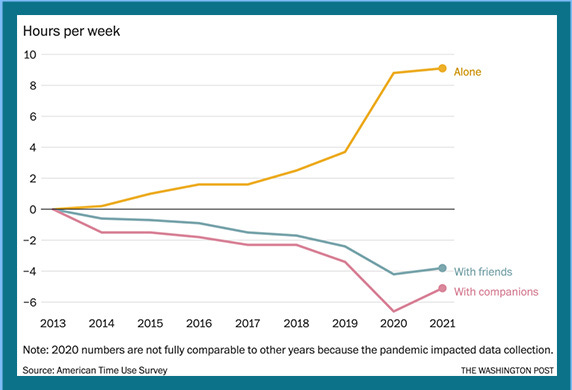Ted Gioia on the joys of techno-optimism (as long as you don’t have to eat Meal 3.0, anyway):
We were now the ideal Techno-Optimist couple. So imagine my shock when I heard crashing and thrashing sounds from the kitchen. I rushed in, and could hardly believe my eyes.
Tara had taken my favorite coffee mugs, and was pulverizing them with a sledgehammer. I own four of these — and she had already destroyed three of them.
This was alarming. Those coffee mugs are like my personal security blanket.
“What are you doing?” I shouted.
“We need to move fast and break things“, she responded, a steely look in her eyes. “That’s what Mark Zuckerberg tells us to do.”
“But don’t destroy my coffee mugs!” I pleaded.
“It’s NOT destruction,” she shouted. “It’s creative destruction! You haven’t read your Schumpeter, or you’d know the difference.”
She was right — it had been a long time since I’d read Schumpeter, and only had the vaguest recollection of those boring books. Didn’t he drink coffee? I had no idea. So I watched helplessly as Tara smashed the final mug to smithereens.
I was at a loss for words. But when she turned to my prized 1925 Steinway XR-Grand piano, I let out an involuntary shriek.
No, no, no, no — not the Steinway.
She hesitated, and then spoke with eerie calmness: “I understand your feelings. But is this analog input system something a Techno-Optimist family should own?”
I had to think fast. Fortunately I remembered that my XR-Grand was a strange Steinway, and it originally had incorporated a player piano mechanism (later removed from my instrument). This gave me an idea:
I started improvising (one of my specialties):
You’re absolutely right. A piano is a shameful thing for a Techno-Optimist to own. Our music should express Dreams of Tomorrow. [I hummed a few bars.] But this isn’t really a piano — you need to consider it as a high performance peripheral, with limitless upgrade potential.
I opened the bottom panel, and pointed to the empty space where the player piano mechanism had once been. “This is where we insert the MIDI interface. Just wait and see.”
She paused, and thought it over — but still kept the sledgehammer poised in midair. Then asked: “Are you sure this isn’t just an outmoded legacy system?”
“Trust me, baby,” I said with all the confidence I could muster. “Together we can transform this bad boy into a cutting edge digital experience platform. We will sail on it together into the Metaverse.”
She hesitated — then put down the sledgehammer. Disaster averted!
“You’re blinding me with science, my dear,” I said to her in my most conciliatory tone.
“Technology!” she responded with a saucy grin.


















